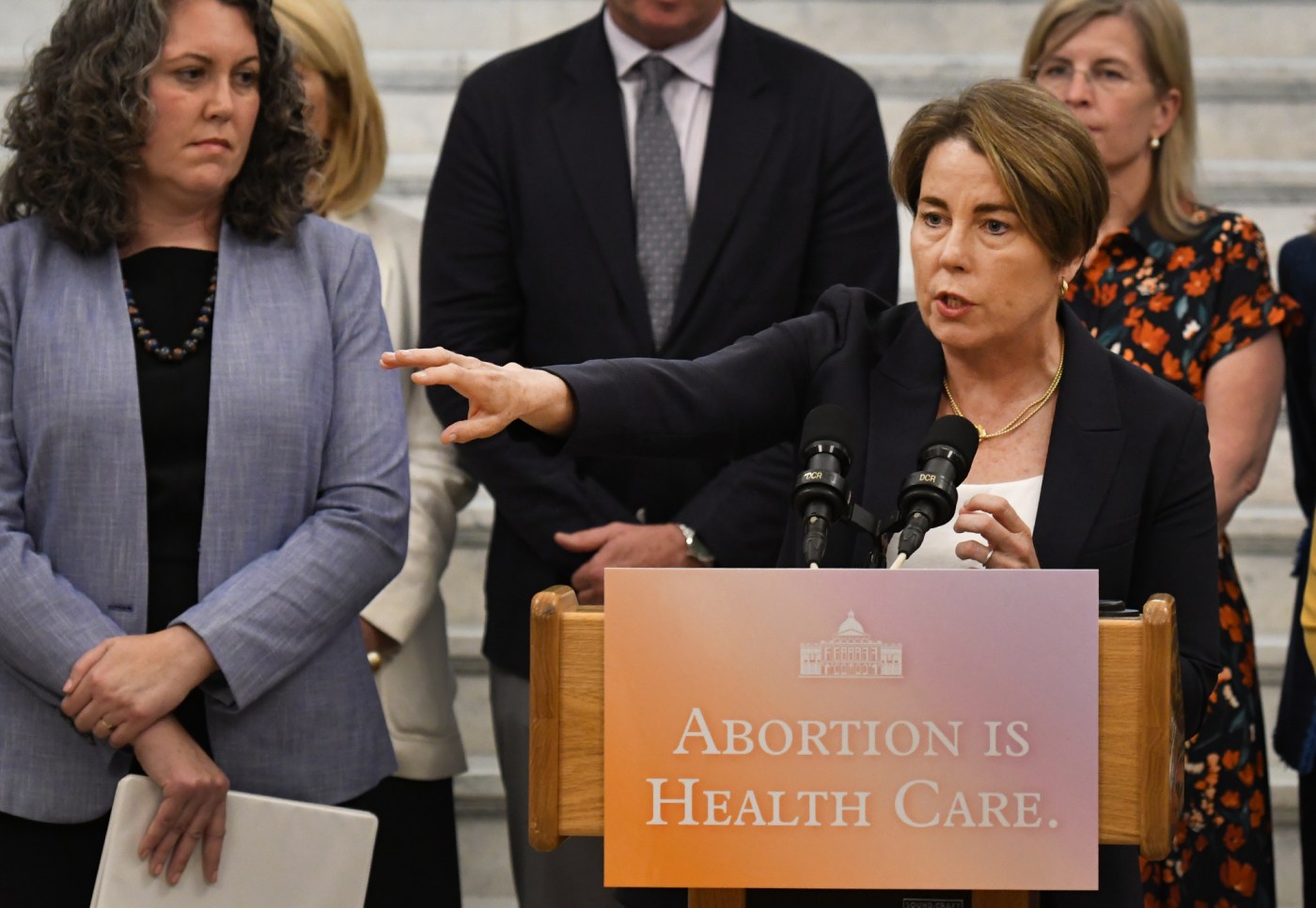
Healey executive order reminds hospitals, healthcare workers that abortion is protected in Massachusetts
Gov. Maura Healey on Monday issued an executive order reminding hospitals and doctors that in Massachusetts, abortion is healthcare and must be provided when necessary.
The action comes as a Supreme Court decision looms on whether or not a state’s near-total ban on abortion is preempted by a federal law, requiring emergency care for patients.
Even as the nation braces for the potential impacts of a ruling in Idaho and Moyle, et al. v. United States — which could determine whether federal law requiring medical facilities to “stabilize a patient’s health” trumps a state laws restricting abortion — Healey said she wants to make clear that the laws of the commonwealth don’t just protect a person’s right to choose an abortion, they require licensed hospitals and healthcare providers to dispense with the procedure if it’s medically called for.
“I’m signing an Executive Order today affirming that Massachusetts patients will continue to receive emergency abortion care at our hospitals regardless of the Supreme Court’s ruling,” Healey said Monday inside the Massachusetts State House.
The executive order makes clear that in order for hospitals or doctors — and “nurses, pharmacists, and physicians assistants” to keep a license to operate or practice in Massachusetts, they’ll have to provide abortion care “when required to avoid the risk or loss of life of a pregnant person or serious harm to their health.”
“Noncompliance constitutes a regulatory violation which could result in revocation of a hospital’s license to operate in Massachusetts,” the order reads, with similar language for healthcare practitioners.
Healey’s executive order comes on the two-year anniversary of the decision in Dobbs v. Jackson Women’s Health Organization, the Mississippi case leading to the end of long-standing national abortion protections previously guaranteed by Roe v. Wade.
Since Roe was overturned, Healey said Monday, 21 states have enacted laws making it harder for women to get an abortion. One in three U.S. women, the governor said, now live in a state where abortion is effectively prohibited.
When other parts of the country choose to roll back reproductive rights, Healey said, that choice directly affects Massachusetts.
“This impacts everyone in Massachusetts. All of the stuff that’s happening at the national level impacts our state, it’s a reason why hundreds more women have had to travel – great distances in some instances — to Massachusetts for needed care,” she said.
The governor said part of the reason she issued the order is that she does not expect the court’s conservative majority to prevent Idaho’s abortion law from taking full effect.
“We have to be prepared,” she said.
The high court will reportedly continue releasing their decisions on a number of cases, including Idaho, on Wednesday. Under the leadership of Chief Justice John Roberts the court has traditionally completed its pending business before the end of June.
The Massachusetts Supreme Judicial Court ruled in 1981 that a patient’s right to choose an abortion is guaranteed by the state constitution’s due process protections.


